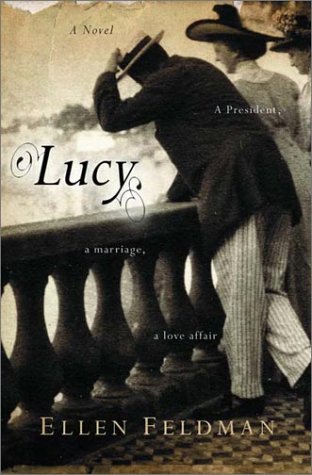Lucy
Lucy Mercer narrates the buildup to and the aftermath of her love affair with Franklin Delano Roosevelt. Hard times drove the aristocratically raised Miss Mercer to work as social secretary to Eleanor, the wife of the Undersecretary of the US Navy. Eventually she and Roosevelt begin a not entirely discreet affair, a more common event in the Washington of WWI than Miss Mercer had imagined. The Victorian sensibilities of the first-person narrator prohibit any physical description other than that they checked into an ill-fated cabin 13. When Mrs. Roosevelt unpacks her ill husband’s suitcases after a trip to Europe, she discovers a packet of love letters.
Mr. (Louis) Howe attempts to remind FDR of the political consequences of the scandalous divorce he is contemplating, but the real impetus that throws Roosevelt back to Eleanor and the five children comes from “Mrs. James,” the future president’s smothering mother who will not tolerate another scandal in their patrician family. Franklin agrees never to see Lucy again, and the narrator becomes Mrs. Lucy Rutherford, the respectable wife of an older widower.
The most interesting part of the book occurs later when the embattled President calls upon Lucy to visit with him in the White House and at Hot Springs. Rather than a love story, the book tells the story of a love that was sacrificed. Political and governmental issues get no more than a passing glance, and the FDR of this narrative comes across as a party boy with the signature line “Isn’t it grand.” Feldman uses genuine historical materials to fashion a love story that owes its originality to its willingness to accept the basic facts of the situation as surely as Miss Mercer came to accept her reality.










